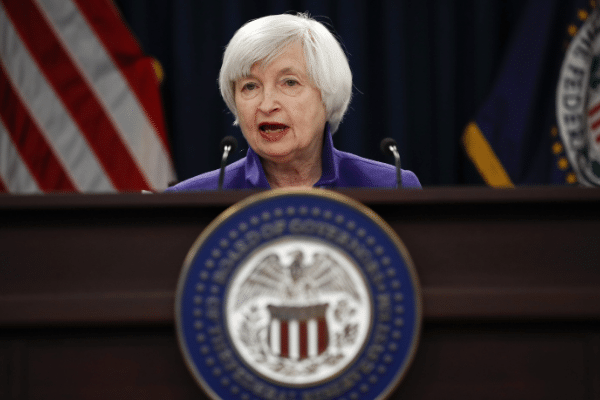
- Treasury Secretary Janet Yellen expressed confidence in the Federal Reserve’s fight against inflation and said she doesn’t see any sign that the US economy is in a broad recession.
- Yellen’s comments may provide the U.S. Federal Reserve with the necessary ammunition to move ahead with another aggressive round of interest rate hikes this week.
Traders can gird their loins for a rough open this final week of July as U.S. Treasury Secretary Janet Yellen argues that there are few (if any) signs that the U.S. economy is headed into a recession.
Speaking at NBC’s “Meet the Press” on Sunday, Yellen noted,
“We’re likely to see some slowing of job creation. I don’t think that’s a recession. A recession is a broad-based weakness in the economy. We’re not seeing that now.”
Yellen’s comments may provide the U.S. Federal Reserve with the necessary ammunition to move ahead with another aggressive round of interest rate hikes this week.
The Fed is largely expected to stick with a 75-basis-point hike this week and markets have priced in front-loading of higher rates to deal with white hot headline inflation in the U.S. that is at its highest level in four decades.
But there is an outside chance of a full 1% rate hike, as policymakers come under pressure to rein in prices which are hurting American consumers.
Yellen acknowledged that U.S. inflation, with the CPI data for June at 9.1% from a year earlier, was still “way too high” and pledged that the Biden administration was committed to doing something about it.
“The Fed is charged with putting in place policies that will bring inflation down. And I expect them to be successful.”
And whether the U.S. economy is in a recession or not isn’t up to Yellen or the Fed.
Instead, the same way that Punxsutawney Phil, a groundhog from Pennsylvania that proclaims whether there will be six more weeks of winter or an early spring, it’s the academics at the National Bureau of Economic Research who declare whether there’s a recession or not.
Yellen argues that even if the U.S. posts two consecutive quarters of economic contraction (which typically qualifies as a recession), she doesn’t expect a recession to be declared,
“I would be amazed if the NBER would declare this period to be a recession, even if it happens to have two quarters of negative growth. We’ve got a very strong labor market. When you’re creating almost 400,000 jobs a month, that is not a recession.”
Yellen’s view is highly problematic on various levels, not least of which because earlier she says that there are no signs of recession because the labor market is tight, yet in the same NBC interview, she says that negative growth is not a recession because there is job growth.
So, which is it?
Does a recession rely on the labor market for data or not?
And the more uncertain the definition of a recession is, the more it hamstrings policymakers to act decisively, especially for the Fed to cut rates despite signs of economic stress and that means more volatility and likely downward pressure on a variety of risk assets, especially equities.



